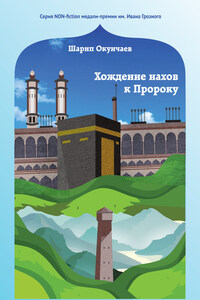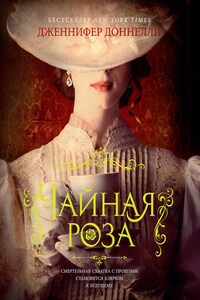“Oh, James, I knew I could rely on you.”
She grasped both his hands in hers and stood on tiptoe to kiss his cheek. “Thank you.”
“Vinny.” He held on to her hands and raised them one by one to his lips. There was no sign of the bantering, carefree young man who loved to tease. “You shouldn’t thank me. I have brought you nothing but grief.”
“How can you say that? You are my dear—” She stopped and looked up at him. He was waiting for her to continue, but she could not. The word brother stuck in her throat.
He said it for her. “Brother?”
“No. Not brother. Not even stepbrother. That was a game we played to amuse everyone.”
“And the time for games is past,” he said quietly, holding her hands to his chest, where she could feel his heart beating almost as quickly as her own. “You know, I have been waiting for you to grow up….”
The canvas was huge, several feet long and seven high, propped against a wall in the ballroom of Stanmore House, the London mansion of the Duke of Loscoe. Beside it, on the floor, were several pots of paint and, on a table nearby, a selection of brushes, cloths and a jar of water.
Lady Lavinia Stanmore, a huge apron covering her spotted gingham gown and paint brush in hand, stepped back to appraise her handiwork, which was so large that it had to be viewed from a distance to see the whole. It was a rustic, fairy-tale woodland scene with several gnarled old trees, wound about with columbine, giving shade to half a dozen rabbits at play, some colourful toadstools and a bank of wild flowers.
‘Heavens, Lavinia! I know you like the broad view, but this is monumental.’
She turned to face the man who stood nonchalantly leaning against the door frame. James, Earl of Corringham, was dressed to a shade and only managed to escape being a fop by a whisker. His hair was fair and as beautifully cut as his superfine green coat. His biscuit-coloured pantaloons tucked in tasselled Hessians and his precisely tied cravat proclaimed him a Corinthian of the first water.
‘Oh, it’s you, James.’
He grinned, his grey eyes alight with humour. ‘Whom else did you expect?’
‘I didn’t expect anyone in particular.’
He stepped forward to inspect the painting more closely. ‘Where on earth are you going to put it? Where in this house, large though it is, is there enough wall space to hang such a monstrosity?’
‘It is not a monstrosity!’
‘I beg your pardon. I did not mean it is ugly,’ he retracted quickly, knowing her temper could be volatile. ‘I meant monstrous in the sense of very big.’
‘It has to be big. It is a scene.’
‘I can see that.’
‘I mean a scene for a play. It is a backcloth for A Midsummer Night’s Dream.’
‘Oh, I see. Tell me more.’
He only asked her for details because he loved looking at her, loved the sound of her voice, the light of enthusiasm in her green eyes when she talked about things that interested her, the way her chestnut curls lay so lovingly on her slender neck, the way she held herself with a natural grace that had nothing to do with her aristocratic antecedents. He loved everything about her and it was a pity she looked on him as an older brother and not, as every mama of the ton viewed him, an eligible man in need of a wife.
He was not her brother, they were in no way related, except through the fairly recent marriage of his stepmother to her father, the Duke of Loscoe, distant enough to make no difference at all to the way he felt about her, the way he had felt ever since meeting her three years before. She had been a high-spirited, wilful sixteen-year-old, up from the country to sample the delights of London for the first time, not yet come out and far too young to be thinking of marriage. When the Duke had married his stepmother the following year it was easier to treat Vinny as a sister and they had fallen into an easy relationship that he had no idea would be so difficult to change.
‘We are going to put on a play to raise money for Stepmama’s orphanages,’ she explained. ‘The cost of running them is rising all the time and the need for them increasing day by day, and I hit on this way of finding the blunt.’
Homes for children orphaned by the late war were one of the Duchess’s favourite charities. It was that more than anything else which had changed Lavinia’s initial resentment of her to grudging admiration which, when her father declared his intention of marrying Frances, soon turned to love.
She had become more of a mother to her than her own mother had ever been. If it had not been for her brother, her childhood would have been a lonely one. Miss Hastings, her governess, had provided a modicum of education along with lessons in manners, but Lavinia had escaped as often as possible to roam the fields, ride her pony or find mischief with Duncan. It was little wonder she had grown up knowing more of the ways of little boys than young ladies. The only time she saw her mother was when she was sent for to be punished for these misdemeanours and that usually meant being confined to the schoolroom and more isolation. It was almost as if her mother could not bear the sight of her.














